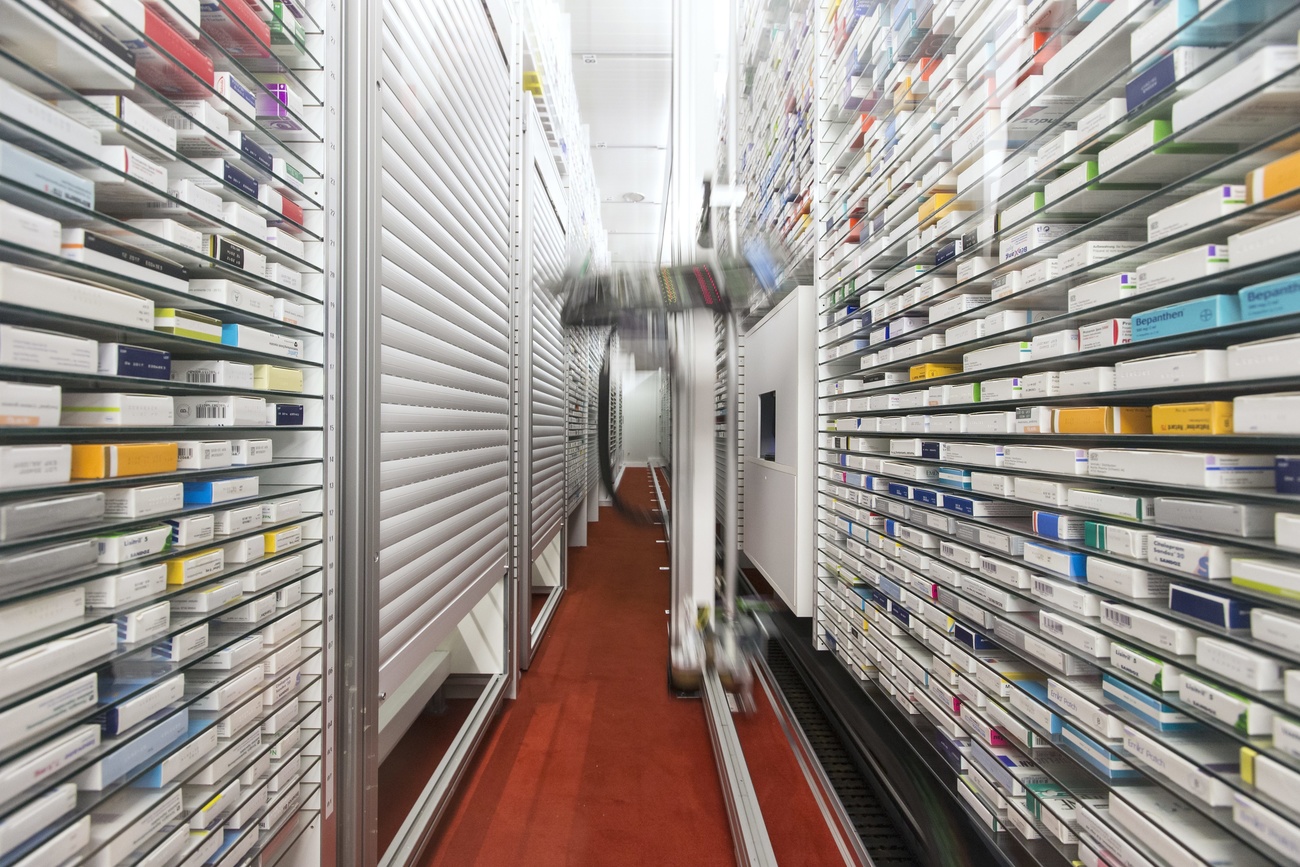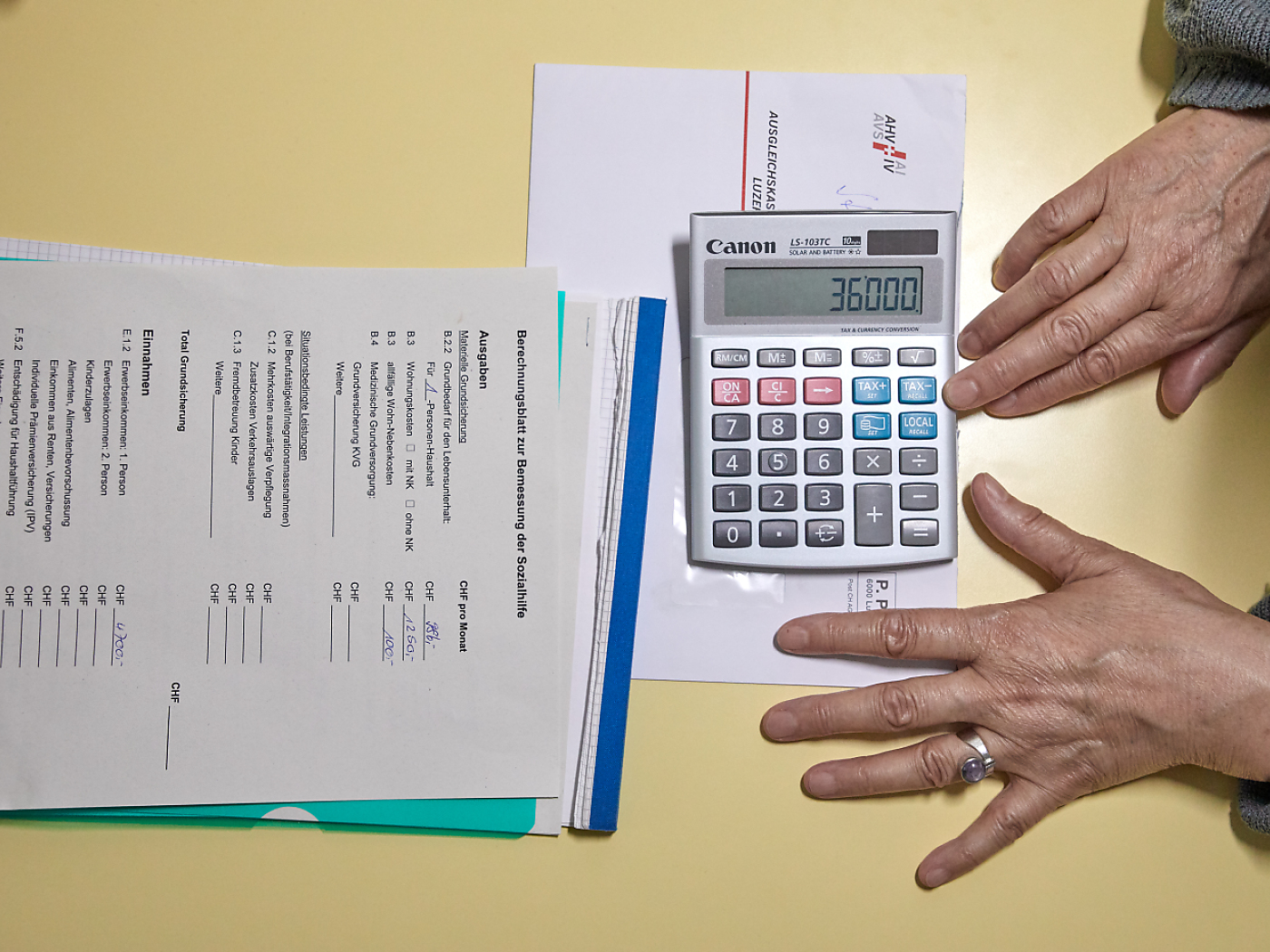Swiss health insurance spent more on medicine than ever in 2023

Last year, Swiss health insurance companies spent CHF9 billion ($10.2 billion) on medicines for compulsory insurance, almost 6% more than in the previous year. And more than ever before.
+ Get the most important news from Switzerland in your inbox
Why have medication costs risen? There are various reasons: more patients, more medication per person and new, expensive therapies. According to Swiss insurance company Helsana, the general price level of new preparations has even doubled in recent years. “A little quantity and a lot of price,” concluded the authors of the Helsana Drug Report published this week.
Switzerland spent around CHF92 billion on healthcare last year. Of which CHF9 billion is for medicine.
Demographic change and chronic disease
The population is aging, which is causing healthcare spending to rise.
The number of people over 65 grew by 2.3% last year, while the permanent resident population increased by 1.7%. The need for medication also increases with age. This means that more and more people need medication, and many take not just one medication, but several.

More
How drug prices are negotiated in Switzerland and beyond
At CHF2.8 billion, cancer and immune system drugs accounted for almost a third of total medication costs. However, they only account for 1.9% of medication purchases. The average annual costs of the five most expensive cancer drugs amounted to around CHF90,000 per patient.
Medicines with the new active ingredient semaglutide (contained in the diabetes medicine Ozempic and the weight loss product Wegovy, among others) could often not be delivered on time. Nevertheless, they caused costs of more than CHF113 million. This corresponds to an increase of almost 40%. Overall, health insurance expenditure on diabetes medication rose to around CHF455 million.
In the case of new weight loss drugs, the effect of new therapies replacing older ones is evident: Doctors have prescribed older drugs that have become cheaper over the years less often, as they are also less effective.
Getting costs under control
How to get costs under control? A proposal for a volume discount or rebate on medicine is currently being discussed in parliament (as part of the healthcare cost containment package 2).

More
What’s behind Switzerland’s push for drug-pricing secrecy?
Above a certain sales threshold, pharmaceutical companies would grant discounts to health insurers or reimburse costs under the proposal. The experts at Helsana see this as a solution. The Swiss pharmaceutical association Interpharma also backs this, but in return demands that price negotiations for new medicines be tackled more quickly.
The deadlines for putting medicine on the market are not being adhered to. As a result, patients are being denied access to newer, effective medicines.
Helsana’s experts also see further potential in generics: two thirds of outpatient medication costs are accounted for by generics.
Translated from German by DeepL/jdp
This news story has been written and carefully fact-checked by an external editorial team. At SWI swissinfo.ch we select the most relevant news for an international audience and use automatic translation tools such as DeepL to translate it into English. Providing you with automatically translated news gives us the time to write more in-depth articles.
If you want to know more about how we work, have a look here, if you want to learn more about how we use technology, click here, and if you have feedback on this news story please write to english@swissinfo.ch.

In compliance with the JTI standards
More: SWI swissinfo.ch certified by the Journalism Trust Initiative



















You can find an overview of ongoing debates with our journalists here . Please join us!
If you want to start a conversation about a topic raised in this article or want to report factual errors, email us at english@swissinfo.ch.